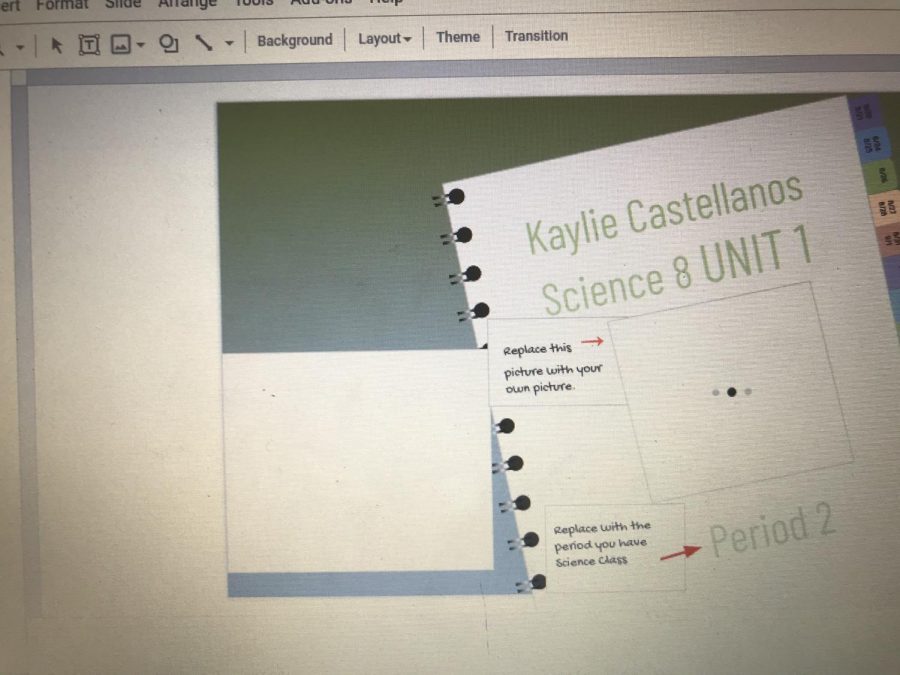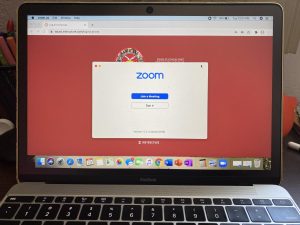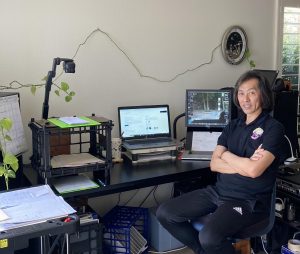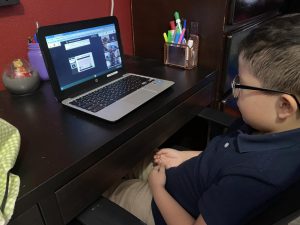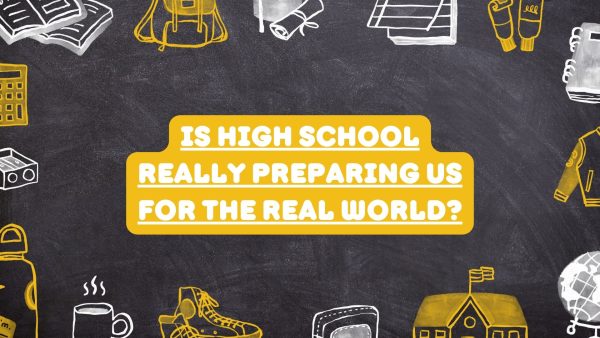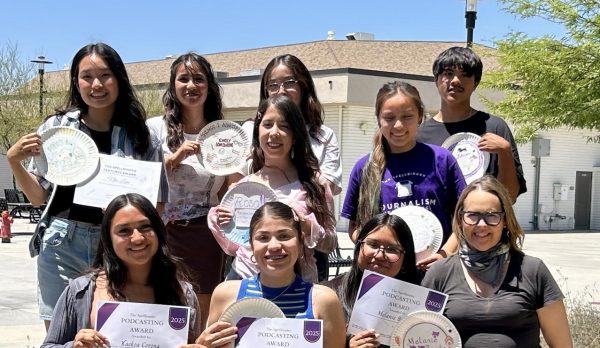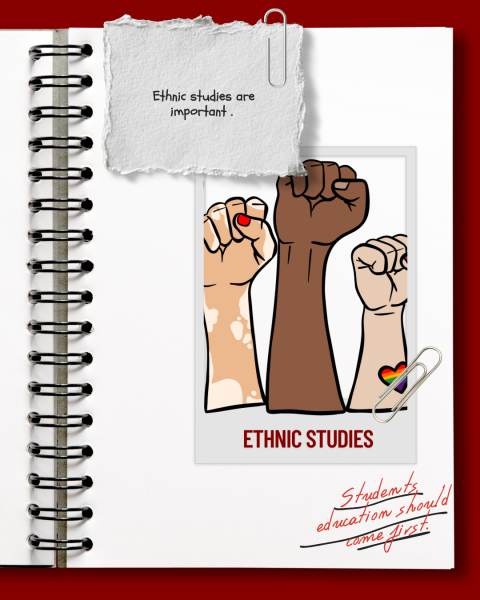Learning while poor: Online learning has negatively impacted low-income students
Eighth grade student Kaylie Castellanos shows her slides not loading.
Up in a one-bedroom apartment sits a student. They have their Chromebook open with a notebook in hand but are unable to log onto their class due to bad internet. A block away lies another student. This one is unable to load their work due to bad software and cannot afford to get a new computer. On the other side of the city sits a group of siblings; they are unsure of how to find separate spaces for them to spend time during school.
Online learning has become the new normal, but problems are arising with this new school system. Some classes may require resources that not everyone has access to; this, in turn, can cause students to fall behind on their work. Responding to a Google Form polling all MCHS students, a majority of students have stated that their most challenging problems with online classes have been distractions at home, internet problems, and not being able to catch up on work due to lagging on their Chromebooks.
Some classes require students to have their mics and camera on, which can be difficult if a student has distractions happening around them or if having the camera on causes everything to lag on their end. Sometimes the internet is not the issue, but rather the software they have; other times, a document will not open or begins to lag because of how large the file is.
One student said, “I wish I had my own laptop to do work with. The Chromebooks are great, but there’s only so much they can do. It just gets annoying after a while when trying to figure out how to transfer documents.”
Even though the school gave students Chromebooks, they still have problems due to how slow the they can be.
Many students have siblings that are also taking classes at the same time as one another. Having the classes run continuously alongside each other can make it difficult for students to listen and pay attention to their teacher.
One student has stated that their most challenging barrier has been “not having a learning space [because I have] three siblings also taking online classes.” With three people using the internet for class, they may find themselves getting disconnected as well as become distracted with each other’s class.
Other students have said that they live in noisy neighborhoods, finding themselves unable to concentrate while others, “don’t have the proper environment to do [their] school work which makes it harder to learn.”
Arlene Quinonez, MCHS’ Family and Community Engagement (FACE) liaison, helps provide families with basic needs and supports them with tools for students to succeed academically. She typically meets with 20-30 families a week, but the pandemic has caused an increase in families needing help. Ms. Quinonez has stated that many of the families she sees come with similar issues.
“A lot of what I’ve noticed since we’ve gone into this virtual world is [that] a lot of times it’s either technology issues- internets down, we need hotspots, we need laptops [and] earbuds. Anything that has to do with technology [that] maybe they don’t have in the home. I either connect them to internet resources, to a hotspot, if they need earbuds, whatever the students need to better support their learning,” she said.
Quinonez has also said that families come to her regarding spatial issues at home. She helps the families figure out how to separate the students to provide an individualized learning environment. She hopes to do her best to help out as many students as she can; her goal is to reach out to students, so everyone knows she’s there for them and their families. Her biggest advice to students is to communicate with the staff when having trouble with online school. She is currently working on making herself more accessible online by posting more on Instagram and she has a new website that will have resources and how-to videos for families and students. Her contact information will be listed below.
Arlene Quinonez
Family and Community Engagement (F.A.C.E.) Liaison
Middle College High School
Santa Ana Unified School District
(323) 989-2706
MCHS F.A.C.E. website: https://sites.google.com/sausdlearns.net/faceupdatesmchs/home
SAUSD Family and Community Resources:
































